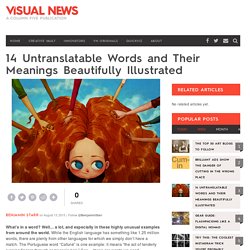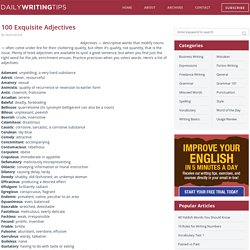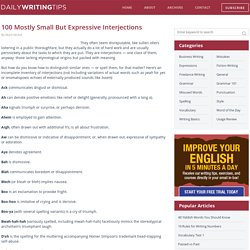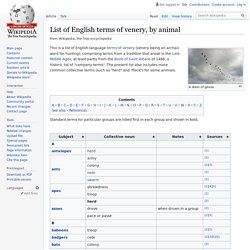

Garden Glossary - Farm Homestead. Gardening Terms Abdomen – the posterior section of the arthropod body.

Abiotic – nonliving. Abscission -the controlled shedding of a part, such as a leaf, fruit, or flower, by a plant Acclimate – to adapt to new environmental conditions. Acidity – quality of being sour; degree of sourness; having a pH of less than 7. Adventitious – plant parts, such as shoots and roots, produced in an unusual position on a plant or at an unusual time of development. Aeration – to be exposed to air; to cause air to circulate through a medium. Aggregates – (soil); clumps or cemented units of mineral and organic matter. Algae – aquatic plants that lack a vascular system.
Alkalinity – having a pH greater than 7. Allelopathy – a biological phenomenon that is characteristic of some plants, algae, bacteria, coral and fungi by which they produce certain biochemicals that influence the growth and development of other organisms. Amendment – an alteration or addition to soil to correct a problem. Callus – wound tissue. Save. Magic Words. 14 Untranslatable Words and Their Meanings Beautifully Illustrated. What’s in a word?

Well… a lot, and especially in these highly unusual examples from around the world. While the English language has something like 1.25 million words, there are plenty from other languages for which we simply don’t have a match. 20 more awesomely untranslatable words from around the world. If only you could use these words in Scrabble.

Photo: Jeremy Mates When linguists refer to “untranslatable” words, the idea is not that a word cannot somehow be explained in another language, but that part of the essence of the word is lost as it crosses from one language to another. This often is due to different social and cultural contexts that have shaped how the word is used. In the novel Shame, Salman Rushdie’s narrator suggests: “To unlock a society, look at its untranslatable words.” Here are 20 words that don’t translate directly into English; what may these words tell us about the societies in which they come from? 1. Arabic – [in-shal-la] While it can be translated literally as “if Allah wills,” the meaning of this phrase differs depending on the speaker’s tone of voice. It can be a genuine sentiment, such as when talking to an old friend and parting with “We’ll meet again, inshallah,” or it can be used as a way to tacitly imply you actually aren’t planning to do something. 2. 15 Beautiful Dutch Words and Phrases We Need in English.
Gezelligheid Although gezelligheid is often equated to cosiness, this catchall concept has considerably more depth than its English counterpart.

For the Dutch, gezelligheid represents a broad spectrum of fun, jovial or amicable situations that are united by their sense of personal comfort and togetherness. Lekker In Dutch, the adjective lekker connotes several positive attributes including nice, appealing and high-quality. Whilst tasty or hearty food is commonly called lekker, the word extends well beyond gastronomy and is often applied to attractive people, well-made clothing, nice weather or even a good night’s sleep.
WordBrewery. Améliorer son vocabulaire dans une langue étrangère. Mise à jour avril 2019 : Malheureusement WordBrewery n’accepte plus de nouveaux comptes. WordBrewery est une plateforme en ligne qui va vous aider à développer votre vocabulaire de base dans une langue étrangère. Elle s’appuie sur des phrases extraites chaque jour d’articles de presse.
Comment pratiquer une langue avec des phrases de tous les jours quand on n’est pas immergé dans la réalité d’un pays ? WordBrewery offre une réponse avec une application Web d’apprentissage des langues originales qui se base sur l’actualité d’où sont extraites de petites phrases permettant d’apprendre ou de réviser le vocabulaire de base de la langue étudiée. WordBrewerry a calculé que les 2 500 mots les plus courants dans n’importe quelle langue représentent 95 % du vocabulaire quotidien.
Vous allez pouvoir choisir un niveau pour démarrer : débutant, intermédiaire ou expert. La version gratuite de WordBrewery vous permet de travailler 30 nouvelles phrases par mois ce qui est un peu léger. 100 Exquisite Adjectives. By Mark Nichol Adjectives — descriptive words that modify nouns — often come under fire for their cluttering quality, but often it’s quality, not quantity, that is the issue.

Plenty of tired adjectives are available to spoil a good sentence, but when you find just the right word for the job, enrichment ensues. Practice precision when you select words. Here’s a list of adjectives: Subscribe to Receive our Articles and Exercises via Email You will improve your English in only 5 minutes per day, guaranteed!
21 Responses to “100 Exquisite Adjectives” 100 Mostly Small But Expressive Interjections. David Bier Thanks for this – what a fun post considering there’s no actual narrative in it!

Cecily Some of these interjections are quite culturally and age specific, so if people need to be told what they mean, they should probably not be using them.For example, to many Brits, va-va-voom is not old-fashioned at all, but instead is firmly linked to the long-running ads that footballer Thierry Henry made for the Renault Clio. Himanshu Chanda Whoa ! What a biiiig list. And yes this ones really great. The Phrontistery: Obscure Words and Vocabulary Resources.
List of English terms of venery, by animal. This is a list of English-language terms of venery (venery being an archaic word for hunting), comprising terms from a tradition that arose in the Late Middle Ages, at least partly from the Book of Saint Albans of 1486, a historic list of "company terms".

The present list also includes more common collective terms (such as "herd" and "flock") for some animals. Standard terms for particular groups are listed first in each group and shown in bold. See also[edit] References[edit] Further reading[edit] Hodgkin, John (1909). World Wide Words.
Etumologos. MayDay Reveue. Lingua Franca. Writān. VERBEIER. Bōks.